Jonathan Arac, Novels and Their Worlds
Literary study is most exciting and most satisfying when it opens new horizons while also allowing the more intimate understanding of specific texts. This seminar encourages participants to bring to the conversation novels important to their individual projects, but it will also engage concretely with important chapters from Herman Melville’s Moby-Dick (1851). We will address Melville—and insofar as possible a wide range of other works not assigned—in relation to several clusters of critical and theoretical writings. These will include Americanist, postcolonial, and world-literary inquiries that address Melville’s work, by critics such as F. O. Matthiessen, Wai Chee Dimock, C.L.R. James, Margaret Cohen, and Franco Moretti. It will include also major theories of the novel: Melville provides a rich test-case as a now-major Western author not, or little, known to most canonical novel-theorists, such as Virginia Woolf, Georg Lukács, Mikhail Bakhtin, and Erich Auerbach. Finally we will consider Melville’s impact on recent and current sea-fiction by Charles Johnson, Barry Unsworth, and Amitav Ghosh.
Jonathan Arac is Mellon Professor of English and Founding Director of the Humanities Center at the 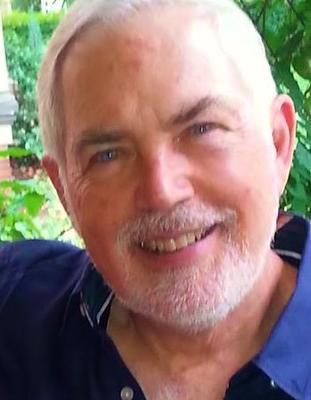 University of Pittsburgh. He has held faculty positions at Princeton, Duke, University of Illinois at Chicago, and Columbia. His books include Critical Genealogies: Historical Situations for Postmodern Literary Studies, Impure Worlds: The Institution of Literature in the Age of the Novel, and as editor, Postmodernism and Politics. His essays include “Anglo-Globalism?”, “Global and Babel,” “Edward Said: The Worldliness of World Literature,” and “World English/World Literature” (forthcoming). Since 1979 he has helped edit boundary 2: an international journal of literature and culture. This seminar emerges from two related book projects: one defines “The Age of the Novel” in the United States; the other configures the international emergence of criticism and theory of the novel in the earlier twentieth century.
University of Pittsburgh. He has held faculty positions at Princeton, Duke, University of Illinois at Chicago, and Columbia. His books include Critical Genealogies: Historical Situations for Postmodern Literary Studies, Impure Worlds: The Institution of Literature in the Age of the Novel, and as editor, Postmodernism and Politics. His essays include “Anglo-Globalism?”, “Global and Babel,” “Edward Said: The Worldliness of World Literature,” and “World English/World Literature” (forthcoming). Since 1979 he has helped edit boundary 2: an international journal of literature and culture. This seminar emerges from two related book projects: one defines “The Age of the Novel” in the United States; the other configures the international emergence of criticism and theory of the novel in the earlier twentieth century.
Session 1: Is Moby-Dick a Novel? Questions of Genre
- Selections from Georg Lukács, Theory of the Novel and Franco Moretti, Modern Epic
Session 2: Is Moby-Dick a Novel? Questions of Language
- Selections from Mihail Bakhtin, The Dialogic imagination and F. O. Matthiessen, American Renaissance
Session 3: Is Moby-Dick a Novel? Realism
- Selections from Henry James, “The Art of Fiction,” Virginia Woolf, A Room of One’s Own, and Erich Auerbach, Mimesis
Session 4: Is Moby-Dick a Novel? Counter-Realism
- Selections from Northrop Frye, Anatomy of Criticism and Fredric Jameson, The Political Unconscious
Session 5: Moby-Dick in Its America
- Michael Paul Rogin, “Moby-Dick and the American 1848” and Herman Melville, “Hawthorne and His Mosses”
Session 6: Moby-Dick in “the World We Live In”
- Selections from C.L. R. James, Mariners, Renegades, and Castaways and Toni Morrison, Playing in the Dark
Session 7: Moby-Dick at Sea
- Selections from Margaret Cohen, The Novel and the Sea and brief excepts from Charles Johnson, Middle Passage; Barry Unsworth, Sacred Hunger, and Amitav Ghosh, Sea of Poppies.
Session 8: Presentations by Participants on novels in dialogue with the Seminar’s concerns
--------------------------------------------------------------------------------------------------------------------------------
David Damrosch, Grounds for Comparison
As we widen the scope of literary studies beyond a national or regional focus, we need to consider freshly the grounds for discussing and comparing works that are not necessarily or primarily linked by relations of direct influence and imitation. This seminar will take up a number of important discussions of the problems and possibilities for comparison and incomparability across time and space, with readings in Detienne, Moretti, Casanova, Apter, Young, and others. We will test these theories against a variety of literary cases, including comparisons of Du Fu and Wordsworth, Molière and Chikamatsu, Gogol and Lu Xun, James Joyce and Clarice Lispector, Eileen Chang and Ang Lee.
David Damrosch is Director of the Institute for World Literature and Professor and Chair of the 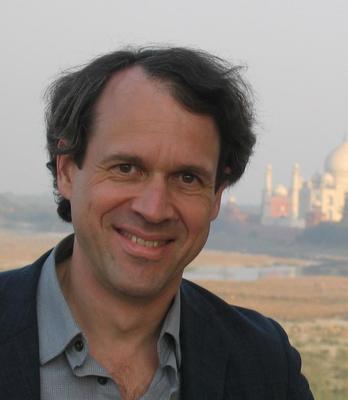 Department of Comparative Literature, Harvard University, USA. A past president of the American Comparative Literature Association, he has written widely on comparative and world literature. His books include What Is World Literature? (2003), The Buried Book: The Loss and Rediscovery of the Great Epic of Gilgamesh (2007), and How to Read World Literature (2009). He is the founding general editor of the six-volume Longman Anthology of World Literature (2004), editor of Teaching World Literature (2009), co-editor of The Princeton Sourcebook in Comparative Literature (2009), and co-editor of a recent collection, Xin fangxiang: bijiao wenxue yu shijie wenxue duben [New Directions: A Reader of Comparative and World Literature] (Peking U. P., 2010).
Department of Comparative Literature, Harvard University, USA. A past president of the American Comparative Literature Association, he has written widely on comparative and world literature. His books include What Is World Literature? (2003), The Buried Book: The Loss and Rediscovery of the Great Epic of Gilgamesh (2007), and How to Read World Literature (2009). He is the founding general editor of the six-volume Longman Anthology of World Literature (2004), editor of Teaching World Literature (2009), co-editor of The Princeton Sourcebook in Comparative Literature (2009), and co-editor of a recent collection, Xin fangxiang: bijiao wenxue yu shijie wenxue duben [New Directions: A Reader of Comparative and World Literature] (Peking U. P., 2010).
Session 1: Introduction: What Is “Literature”?
- Poems for comparison by Sappho and Catullus; Du Fu and Wordsworth
- Anandavardhana and Alejandra Pizarnik; Aztec poems
Session 2: Reading across Cultures
- Marcel Detienne, “Constructing Comparables”
- Molière, The Bourgeois Gentilhomme
- Chikamatsu Monzaemon, Love Suicides at Amijima
Session 3: Evolution and Diffusion
- H. M. Posnett, “Relativity of Literature”
- Franco Moretti, “Conjectures on World Literature,”
- "Evolution, World-Systems, Weltliteratur”
- Sonnets by Petrarch, Wyatt, Labé, and Shakespeare
- Short stories: Higuchi Ichiyo, “Separate Ways,"
- James Joyce, "The Sisters," "Eveline," and Clarice Lispector, "Happy Birthday"
Session 4: Comparative Peripheries (1)
- Gogol, “Diary of a Madman”
- Charlotte Perkins Gilman, “The Yellow Wallpaper”
- Lu Xun, “A Madman’s Diary”
- Hu Shih, “Some Modest Proposals for the Reform of Literature”
- Selected pages from New Youth magazine
Session 5: Comparative Peripheries (2)
- Oswald de Andrade, “The Cannibalist Manifesto”
- Jorge Luis Borges, “The Argentine Writer and Tradition”
- Pascale Casanova, “Literature, Nation, and Politics”
- Borges, “Pierre Menard”
- Julio Cortázar, “Axolotl”
- Clarice Lispector, selections from Crónicas
Session 6: Globalization and the Politics of Language
- Salman Rushdie, “Imaginary Homelands”
- Robert J. C. Young, “World Literature and Postcolonialism”
- Rudyard Kipling, selections from Kim
- Salman Rushdie, “Chekov and Zulu”
- Jamyang Norbu, selections from The Mandala of Sherlock Holmes
Session 7: World Languages, World Literatures
- Stephen Owen, “Stepping Forward and Back: Issues and
- Possibilities for 'World' Poetry"
- Emily Apter, “A New Comparative Literature”
- Derek Walcott, “Volcano,” “The Fortunate Traveller”
- Agha Shahid Ali, selected ghazals
Session 8: Global Media
- Denilson Lopes, “Global Cinema, World Cinema”
- Zhang Ailing (Eileen Chang), “Lust, Caution”
- Ang Lee, Lust, Caution; with an evening screening of the film
-
Young-hae Chang Heavy Industries, “Dakota,” “DMZ Tour with Bulgoki Lunch,” and “Cunnilingus in North Korea”
-------------------------------------------------------------------------------------------------------------------------------
Debjani Ganguly, The Contemporary World Novel: Hauntings and Mediations
The ubiquity of the novel in the scholarship on world literature is unmistakable. More than any other genre, the novel is perceived as future-oriented and open-ended, ready to absorb within its polymorphous ambit the indeterminacy of the present, a genre that, in Bakhtin’s words, ‘has a living contact with the unfinished, still evolving contemporary reality.’ It not only travels well, but is arguably also the genre par excellence of the mutating lifeworlds of global capitalism. The contemporary novel, thus, makes for a good case study to examine the idea of world making in our time and the specific literary provenance of the ‘global’ in its make up.
But what do we understand by the term ‘world novel’? What is its relation to contemporary globalization and the age of information capitalism on the one hand, and the modern European novel on the other, as this latter evolved in the age of commerce and early industrial capitalism? How does it compare with global imaginaries found in colonial and postcolonial novels? What forms does it take? What are its dominant tropes and themes? This seminar will offer some in-depth insights. Specifically, we will examine the novel’s historical links to distant suffering, technologies of mediation and the rise of the humanitarian imagination - the staple of eighteenth century debates in moral philosophy and the rise of the sentimental novel - in the context of the emergence of a critical mass of world novels written against the backdrop of contemporary global conflicts. New media technologies have been critical in mediating these zones of war for diverse publics around the world. Short excerpts from novels by Ian McEwan, Joe Sacco, Don De Lillo, Michael Ondaatje, David Mitchell, Nadeem Aslam, Janet Turner Hospital, Salman Rushdie, Amitav Ghosh and Rabindranath Tagore, will feature as case studies as will significant scholarly voices in the field of novel studies.
Debjani Ganguly is Director of the Humanities Research Centre and a professor of literature at the 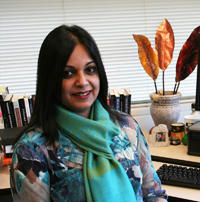 Australian National University. Her areas of research interest include the contemporary Anglophone novel, literary forms in the new media age, postcolonial approaches to caste and dalit studies, Indian literatures in Hindi, Marathi and Bengali, language worlds in colonial/postcolonial South Asia and Indian Ocean literary worlds from 1750-1950. She is the author of This Thing Called the World: The Novel in Our Time (Duke University Press, 2015, in press) and Caste, Colonialism and Counter-Modernity: Notes on a Postcolonial Hermeneutics of Caste (Routledge 2005). She is currently working on a new monograph on new visual media and the twenty-first century novel. Debjani has held visiting fellowships at the University of Chicago, University of Cambridge, University of Oxford, and University of Michigan. In 2015, she will be Halls Visiting Professor at the University of Wisconsin Madison. Debjani is a Life Fellow of Clare Hall, Cambridge, Fellow of the Royal Asiatic Society of Great Britain and Ireland, and Member on the international advisory boards of the Harvard Institute for World Literature and the Consortium of Humanities Centers and Institutes (CHCI), Duke University. She is a member of the PMLA Advisory Committee and co-edits (with Ato Quayson and Neil Ten Kortenaar) the Cambridge Journal of Postcolonial Literary Inquiry.
Australian National University. Her areas of research interest include the contemporary Anglophone novel, literary forms in the new media age, postcolonial approaches to caste and dalit studies, Indian literatures in Hindi, Marathi and Bengali, language worlds in colonial/postcolonial South Asia and Indian Ocean literary worlds from 1750-1950. She is the author of This Thing Called the World: The Novel in Our Time (Duke University Press, 2015, in press) and Caste, Colonialism and Counter-Modernity: Notes on a Postcolonial Hermeneutics of Caste (Routledge 2005). She is currently working on a new monograph on new visual media and the twenty-first century novel. Debjani has held visiting fellowships at the University of Chicago, University of Cambridge, University of Oxford, and University of Michigan. In 2015, she will be Halls Visiting Professor at the University of Wisconsin Madison. Debjani is a Life Fellow of Clare Hall, Cambridge, Fellow of the Royal Asiatic Society of Great Britain and Ireland, and Member on the international advisory boards of the Harvard Institute for World Literature and the Consortium of Humanities Centers and Institutes (CHCI), Duke University. She is a member of the PMLA Advisory Committee and co-edits (with Ato Quayson and Neil Ten Kortenaar) the Cambridge Journal of Postcolonial Literary Inquiry.
Week 1: Putting the Novel in its Place
- Marthe Robert, from Origins of the Novel, in The Theory of the Novel ed. Michael McKeon.
- Thomas Pavel. ‘The Novel in Search of Itself: A Historical Morphology.’ In The Novel Vol 2, ed. Franco Moretti.
- Ian Watt, from The Rise of the Novel, in The Theory of the Novel ed. Michael McKeon.
- Jonathan Arac, ‘This Will Kill That: A Provocation on the Novel in Media History’ in Novel: Forum on Fiction.
- Optional Reading: George Lukacs The Theory of the Novel.
Week 2: World-Making, Globalism and the Contemporary Novel
- Ian McEwan, excerpts from Saturday.
- Eric Hayot, from On Literary Worlds.
- Ruth Ronen, ‘The Autonomy of Fiction and the Concept of World’ from Possible Worlds in Literary Theory.
- David Palumbo-Liu, from The Deliverance of Others: Reading Literature in a Global Age.
- Optional Reading: Mariano Siskind, ‘The Globalization of the Novel and the Novelization of the Global,’ Comparative Literature.
Week 3: Remediating 18th Century Worlds: Spectatorship and Sympathy
- Thomas Haskell, ‘Capitalism and the Origins of Humanitarian Sensibility,’ Part 2, American Historical Review.
- Thomas W.Laqueur, ‘Bodies, Details and the Humanitarian Narrative,’ in The Cultural History, ed. Lynn Hunt.
- Ian Baucom, ‘The Imaginary Resentment of the Dead: A Theory of Melancholy Sentiment’ from Specters of the Atlantic: Finance Capital, Slavery and the Philosophy of History.
- Suzanne Keen, ‘The Literary Career of Empathy,’ from Empathy and the Novel.
-
Optional Reading: James Chandler, An Archaeology of Sympathy: The Sentimental Mode in Literature and Cinema and Luc Boltanksi, Distant Suffering: Morality, Media and Politics.
Week 4: The Colonial/Postcolonial Arc: Nations and Oceans
- Rabindranath Tagore, excerpts from The Home and the World.
- Amitav Ghosh, excerpts from The River of Smoke.
- Vinay Dharwadkar, ‘Constructions of World Literature in Colonial and Postcolonial India,’ The Routledge Companion to World Literature, eds. Theo D’Haen, David Damrosch and Djelal Kadir.
- Gaurav Desai, ‘Old World Orders: Amitav Ghosh and the Writing of Nostalgia’ from Commerce with the Universe: Africa, India and the Afrasian Imagination.
Week 5: Late Capital: Spectral Worlds, Networked Novel
- David Mitchell, excerpts from The Ghostwritten.
- Salman Rushdie, excerpts from Shalimar the Clown.
- Patrick Jagoda, ‘Terror Networks and the Aesthetics of Interconnection,’ Social Text.
- Ian Baucom, ‘The View from the Window: Sympathy, Melancholy and the Problem of Humanity’ from Specters of the Atlantic: Finance Capital, Slavery and the Philosophy of History.
- Optional Reading: Jacques Derrida, Specters of Marx: The State of Debt, the Work of Mourning and the New International and Manuel Castells, The Rise of Network Society.
Week 6: Global Wars, Neo-Visuality and Hypermediation
- Don De Lillo, excerpts from Falling Man.
- Joe Sacco, excerpts from Footnotes in Gaza.
- Nicholas Mirzoeff, ‘The Right to Look,’ Critical Inquiry.
- W.J.T Mitchell, from Cloning Terror: The War of Images, 9/11 to the Present.
- Optional Reading: Mary Kaldor, from New and Old Wars: Organized Violence in a Global Era; Guy Debord, Society of the Spectacle, and Art Spiegelman, In the Shadow of No Towers.
Week 7: Witnessing and Humanitarian Inscription
- Michael Ondaatje, excerpts from Anil’s Ghost.
- Janet Turner-Hospital, excerpts from Orpheus Lost..
- Nadeem Aslam, excerpts from The Wasted Vigil.
- Debjani Ganguly, ‘The World Novel, Mediated Wars and Exorbitant Witnessing,’ Cambridge Journal of Postcolonial Literary Inquiry.
- Meg McLagan, ed. ‘Technologies of Witnessing: The Visual Culture of Human Rights,’ American Anthropologist.
- Optional Reading: Samuel Moyn, from The Last Utopia: Human Rights in History and Joseph Slaughter, from Human Rights Inc: The World Novel, Narrative Form and International Law.
Week 8: Concluding session:
Discussion of key issues arising from the past 7 sessions and a wrap up.
-----------------------------------------------------------------------------------------------------------------------------------
Djelal Kadir, When Literature Meets the World
The eight sessions of this two-week unit of the 2015 Institute for World Literature examine the relationship between literature and the world through certain seminal texts in dialogue with a number of theoretical/critical statements. In these literary texts, drawn broadly from varying historical epochs, genres, and literary traditions, we see how a world-engendered literature anticipates its own role as world-engendering performance. We also see how these literary texts foreshadow the epistemic and institutional constructs that now define a research field and discipline we call World Literature. The textual evidence in our readings demonstrates literature’s perennial anticipation of our most sophisticated critical discourses, including the intricate web we call world literature and its multiple modalities as concept, as phenomenon, as practice, and as pedagogy.
Djelal Kadir is the Edwin Erle Sparks Professor of Comparative Literature at Pennsylvania State 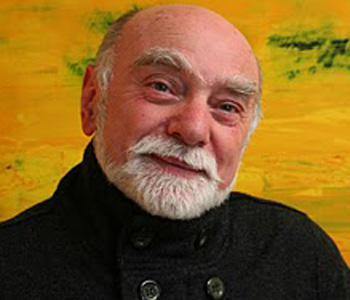 University. His most recent book is Memos from the Besieged City: Lifelines for Cultural Sustainability (Stanford, 2010). Previous works include Questing Fictions (1986), Columbus and the Ends of the Earth (1992), and The Other Writing (1993). He is the co-editor of The Routledge Companion to World Literature (2011), of The Longman Anthology of World Literature (2003; 2009), and of the Comparative History of Latin American Literary Cultures (2004). He is the Founding President of the International American Studies Association, a member of the Advisory Board of the American Comparative Literature Association, a board member of the Stockholm Collegium of World Literary History, and of Synapsis: The European School of Comparative Studies.
University. His most recent book is Memos from the Besieged City: Lifelines for Cultural Sustainability (Stanford, 2010). Previous works include Questing Fictions (1986), Columbus and the Ends of the Earth (1992), and The Other Writing (1993). He is the co-editor of The Routledge Companion to World Literature (2011), of The Longman Anthology of World Literature (2003; 2009), and of the Comparative History of Latin American Literary Cultures (2004). He is the Founding President of the International American Studies Association, a member of the Advisory Board of the American Comparative Literature Association, a board member of the Stockholm Collegium of World Literary History, and of Synapsis: The European School of Comparative Studies.
Session 1: Primal Scenes
- “In the Beginning,” from Hymns from the Rig Vega (1500-1000 BC)
- Wallace Stevens, “The Snow Man” (1921)
- Johann Gottfried Herder, “Results of a Comparison of Different Peoples’ Poetry in Ancient and Modern Times” (1797)
Session 2: Vicissitudes of Difference––Diverse Conception, Common Fate
- Homer, Book 8 lines 585ff & Book 9 of The Odyssey (8th century BC)
- Lu Chi, “Essay on Literature [Wen Fu]” (261-303 AD)
- Michelangelo Buonarroti, “This Comes from Dangling from the Ceiling” (ca. 1510)
- Erich Auerbach, “Philology and Weltliteratur” (1952)
Session 3: Performative Turns
- Gerard Manley Hopkins, “As Kingfishers Catch Fire” (1918)
- Jorge Luis Borges, “The Zahir” (1947)
- Zbigniew Herbert, “Pebble” (1961)
- Edward W. Said, “The World, the Text, and the Critic” (1983)
Session 4: Counterfactual Facts––The Textual Corpus
- Andrew Marvell, “To His Coy Mistress” (ca. 1650)
- Yasunari Kawabata, “One Arm” (1969)_
- Mark Amerika, GRAMMATRON, 1993-1997. URL: http://www.grammatron.com/ and Hypertextual Consciousness. URL: http://www.grammarton.com/htc.html and PHON:E:ME, 1999. URL: http://phoneme.walkerart.org/launch.html.
- See (in reading packet): Arnaud Regnauld, “‘To incorporate or not to incorporate, that is the nullification.’ Digital Embodiment in GRAMMATRON and PHON:E:ME by Mark Amerika.” Revue Française d’Études Américaines. 132.2 (2012): 76-89.
Session 5: World Systems
- Jorge Luis Borges, “Tlön Uqbar Orbis Tertius” (1940)
- Djelal Kadir, “Comparative Literature in a World Become Tlön” (2006)
- Franco Moretti, “Evolution, World-Systems, Weltliteratur” (2006)
- Emily Apter, “Literary World Systems” (2009)
Session 6: Cosmopolitanism, Cosmopolice, Cosmicomics
- From Lucian of Samosata, A True Story (2nd century)
- Italo Calvino, “The Daughters of the Moon” (1965)
- Pauline Kleingeld and Eric Brown, "Cosmopolitanism", The Stanford Encyclopedia of Philosophy (Fall 2014 Edition), Edward N. Zalta (ed.), URL = <http://plato.stanford.edu/archives/fall2014/entries/cosmopolitanism/>
Session 7: Globalization, Planetarity, Counter-discourse
- Jorge Luis Borges, “Partial Magic in the Quixote” (1949)
- From Kai-Cheung Dung, Part I, of Atlas: Archeology of An Imaginary City.
- Dipesh Chakrabarty, “Postcolonial Studies and the Challenge of Climate Change” (2012)
Session 8: Heterocosm, or the genesis of literature
- From Aristophanes, Thesmophoriazusae (411 BC)
- Rudy Weibi, “Where Is the Voice Coming From” (1971)
- From Haruki Murakami, 1Q84 (2009-10)
- Martin Heidegger, “Origin of the Work of Art” (1935)
----------------------------------------------------------------------------------------------------------------------------
Franco Moretti, The Tragedy: Conflict and Form
The seminar explores the two crucial and antithetical aspects of tragic drama: its focus on an irreconcilable struggle, that makes all efforts at mediation vain – and its use of a language of extraordinary lucidity and even elegance. We will follow this duality of catastrophe and form from the archetypal dilemma of Antigone – family or state? – through its absolutist metamorphosis in Corneille and Calderón, the self-destruction of the intimate sphere in bourgeois modernity [Goethe, Ibsen], and the contradictions of modern political language [Büchner, Soyinka]. One of the eight sessions will be a lecture/workshop on the use of network theory for the analysis of dramatic structure.
Franco Moretti is author of Signs Taken for Wonders (1983), The Way of the World (1987), Mod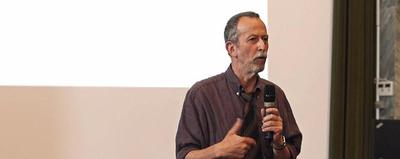 ern Epic (1995), Atlas of the European Novel 1800-1900 (1998), Graphs, Maps, Trees (2005), The Bourgeois (2013), and Distant Reading (2013). Chief editor of The Novel (2006). He has founded the Center for the Study of the Novel and the Literary Lab. Writes often for New Left Review, and has been translated into over twenty languages.
ern Epic (1995), Atlas of the European Novel 1800-1900 (1998), Graphs, Maps, Trees (2005), The Bourgeois (2013), and Distant Reading (2013). Chief editor of The Novel (2006). He has founded the Center for the Study of the Novel and the Literary Lab. Writes often for New Left Review, and has been translated into over twenty languages.
Session 1:
- Sophocles, Antigone
- Hegel, Georg Wilhelm Friedrich. G.W.F. Hegel: The Oxford University Press Translations. Electronic Edition. Hegel's Aesthetics: (lectures On Fine Art: Volume I)
Session 2:
- Corneille Le Cid
Session 3:
- Calderón, Life is a dream
Session 4:
- Seminar Talk: Network Theory and Dramatic Structure [no readings]
Session 5:
- Goethe, Faust part I [selections]
Session 6:
- Ibsen, Doll's House
Session 7:
- Büchner, Danton's Death
Session 8:
- Soyinka, Death and the king’s horseman
-----------------------------------------------------------------------------------------------------------------------
Jale Parla, Fictions of Metamorphosis: Classical, Modern, Postmodern
Metamorphosis as a spontaneous, abrupt, arbitrary, liminal, and unaccountable experience of radical transformation has appealed to the literary imagination since the time of Ovid’s Metamorphoses, in which the Roman writer retold Greek mythology by reorganizing it around that theme. In this seminar, we shall look into how the theme of metamorphosis gets charged with new signifying economies from one historical epoch to another. The course will begin with a discussion of selections from Ovid’s Metamorphoses and will continue by investigating the literary executions of metamorphosis as they relate to adjacent areas of literature, such as psychology (with special reference to Jung, Freud, Lacan); philosophy (with special reference to self, identity, and agency); the grotesque (with special reference to corporeal disfigurations, dismemberment, disembodiment), and genre (with special reference to the fantastic and magical realism). Primary texts include selections from Ovid, Metamorphoses; Gogol, The Nose; Shelley, Frankenstein, E.T.A.Hoffmann, The Sandman; Borges, “The Circular Ruins,” Nabakov, “The Return of Chorb,” and Coetzee, The Life and Times of Michael K.
It is assumed that everybody is familiar with Kafka’s Metamorphosis.
Jale Parla, Harvard Comp.Lit Ph.D. 1978, is Professor of English and Comparative Literature at the Department of Comparative Literature at Istanbul Bilgi University. Aside from her books in Turkish, she has published articles in English in journals such as PMLA, SAQ, and CLS. Her special field is the European (English, French, German) and the Turkish Novel.
Session 1: Ovid, Metamorphosis. Trans. Charles Martin. New York: Norton. “The Judgment of Tiresias”, Narcissus and Echo”, “Narcissus”, ll. 409-658.
- Claire Nouvet, “An Impossible Response: The Disaster of Narcissus,” Yale French Studies, 79(1991), 103-34.
- Gayatri Chakravorty Spivak, “Echo”, New Literary History, vol.24.no.1(Winter 1993), 17-43.
Session 2: Ovid, “Pygmalion,” ll. 312-371.
- Jean Jacques Rousseau,”Pygmalion: A Lyrical Scene.”
Session 3: Mary Shelley, Frankenstein (download Project Gutenberg).
- Peter Brooks, “Godlike Science/Unhallowed Arts: Language, Nature, and Monstrosity,” Endurance of Frankenstein. Ed, George Levine and U.C. Knoepflmacker (Berkeley: University of California Press, 1979), 205-220.
Session 4: E.T.A. Hoffmann, The Sandman in Eric S. Rabkin, ed. Fantastic Worlds: Myths, Tales, and Stories (Oxford:Oxford University Press,1979), 214-246.
- Sigmund Freud, The “Uncanny,” Standard Edition of the Psychological Works of Sigmund Freud, ed. James Strachey, vol. XVII, pp. 219-252.
Session 5: Nikolai Gogol, “The Nose.” http://h42day.100megsfree5.com/texts/russia/gogol/nose.htm
Session 6: Kafka, “The Burrow”
- Borges, “Circular Ruins,” http://www.acsu.buffalo.edu/-jtill/175/Circular Ruins.htm
Session 7: Vladimir Nabokov, “The Return of Chorb,” Vintage Nabokov. Vintage, 2004.
Session 8: J.M. Coetzee, Life and Times of Michael K. (Participants should bring their own copy of the novel).
